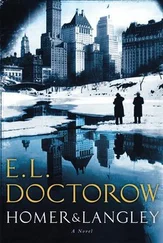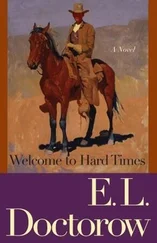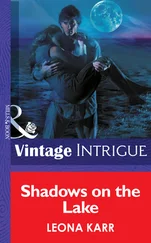Of course I couldn’t express to Libby even the most idly curious question about this princess living on the grounds. But she had loved showing me the guest book and I thought from her same peasant identification with Bennett wealth she would enjoy the wonder on my face as she secretly showed me the main house, where they lived and had their lives and Charlie Chaplin and the one-named kings sat down to dinner.
The Bennetts not at home there was a bending of the rules: on Saturday night two Loon Lake station wagons pulled out leaving a skeleton staff.
On Sunday afternoon with the sun coming through the trees at low angles to light the rooms, through rectangles of sun along dark corridors, Libby and I tiptoed about the vast upstairs with its hall alcoves of casement windows and window seats and bookshelves and its suites of rooms, each with its generous shade porch, and Adirondacks chairs and sofas.
Whatever empty room I saw led my mind to the next room, the next turn in the corridor, everywhere the light off the lake cast its silvery shimmer on the walls or in my eyes as we passed open doorways.
One wing was closed off. “We can’t go there,” Libby said.
“Why not?” I asked, casual as I could be.
“It’s the Bennetts’ wing, where they stay.”
“Is someone there?”
“No. But I wouldn’t feel right about it. Rose and Mary take care of it,” she said.
She led me down a back stair through a kitchen with two black steel ranges and pantries of provisions and several iceboxes each crowned with its humming cylindrical motor.
Through a room of glass cabinets filled with sets of china and drawers of silver service.
Through the hexagonal dining room, three walls of glass and a table hexagonal in shape to seat thirty people.
To the huge living room, the grandest room of all, with tan leather couches built into the walls, the walls hung with the heads of trophy. There were two different levels of game tables and racks of magazines and clusters of stuffed chairs all looking out enormous windows to the lake.
I found myself tiptoeing, with a sense of intrusion, my chest constricted — and something else — the thinnest possibility of destructive intent, some very fine denial on my part to submit to awe. “Of course this is just one of their places,” Libby said. “Can you imagine?”
One or two steps up and we were in the entrance hall. The walls were of dark rough wood. We stood under a chandelier made from antlers. I gazed up a wide curved staircase of halved logs polished to a high shine, with balusters of saplings. I gazed at this as at the gnarled and swirling access to a kingdom of trolls.
“Don’t you love roughing it?” I said to Libby, running her up the staircase. “What!” she cried, but laughing too, entirely subject to my mood. In the long upstairs corridor I placed her hand on my arm and strolled with her as if we were master and mistress. I led her into one of the suites and flinging open the glass doors of the porch, I extended my arm and said, “Let us enjoy the view that God in his wisdom has arranged for us, my deah.” She swept past me giggling in the game and we stood in the sun side by side looking over the kingdom.
“Do you mind if I smoke, old girl?” I said in my best imitation of wealthy speech. “No? Why, thank you, I think I’ll light up one of these monogrammed cigs with my initials on them.”
She was animated with pleasure, how easily she could be made to live! I kissed her to show her how the wealthy kissed, their noses so high in the air that their lips never met, only their chins. Then of course I kissed her properly. She was confused, she drew back blushing, she had thought it her secret that she was sweet on me.
Whatever I wanted from poor Libby I couldn’t explain what I was doing solely to gain it. We had the run of the house and pretended to be masters. For those few minutes the upstairs maid and the hobo boy were the Bennetts of Loon Lake.
Libby took my hand and showed me a storage room where F. W. Bennett kept his stock of outfits that he provided his guests as gifts: riding habits and boots, tennis flannels, bathing suits, a goddamn haberdashery.
I stood in front of a full-length mirror and took off my greens and put on a pair of tan tweed knickers with pleats, ribbed socks, brown-and-white saddle shoes, my size, a soft white shirt, and a white sweater with an argyle design of large gold and brown diamonds across my chest.
I was stunned by the magnificent youth that looked back at me from the mirror. All the scars and deeper marks of hard life were covered in fine fashion. The face, a bit gaunt but unlined, the hair I combed back hastily with my fingers. He made a passing aristocrat! Well, I thought, so a lot of the effect comes from the outside, doesn’t it? I might be a Bennett son!
And then I felt again my child’s pretense that those two gray sticks in Paterson were not really my parents but my kidnappers! Who knew whose child I was!
I dreamed of recognition from her from Clara. It was her nearness that made me so crazy, and bold with Libby. So feverish so happy.
And as for Bennett I thought, He is no more aware of me than of some unfortunate prowler mauled by the wild dogs. But here I am, wearing his clothes, wandering freely through his house. Here I am, Mr. Muck-amuck, and you don’t even know it!
Then Libby came back from the female supply store and she was wearing jodhpurs and a silk blouse and a riding helmet perched none too securely on her thick hair and she wobbled in a pair of shiny boots too wide in the shank for her thin legs.
“You look swell, Libby,” I said. She turned around with little shaky steps and gave me all the dimensions. Her gray eyes shone, her mouth stretched in her tremulous overbitten smile. I danced her out of there down the corridor doing a fast fox trot full of swirls while I hummed the tune I had heard the night I came, “Exactly Like You,” Libby laughing and worrying at the same time, telling me to hush, looking back over her shoulder, giggling, falling against me every other step, brushing my cheek with her lips. And the light lay like a track along the carpet and shone in golden stations of the open doors.
There being no sign of her in the main house I knew she was staying in the smaller lodge perhaps a hundred yards west, into the woods and halfway down the hill to the lake.
I think I must have spent some while calculating how to get there, figuring out a pretext and then a script for the conversation we would have. But one evening, during the staff meal, one of the woodfolk, a grandmotherly one, said to me, “That Penfield called. You’re to go over to the cottage.”
“Who, me? What for?”
“How should I know?” she said. “I’ll be glad when you’re gone and them with you.”
I finished my meal as slowly as I could, feigning the attitude of the workingmen of dark green. I washed my tray and lit a cigarette and sauntered back to my room.
I latched the door and changed from my work clothes to the knickers and shirt and sweater and ribbed socks and saddle shoes. Poor Libby, all happiness drained like the color in her face when I told her I was keeping these things. Shouldn’t she have known that the fellow who’d write in the guest book would do that? Anyway, she understood the firm basis of our relationship, that whatever trust she placed in me I would betray.
And as for Mr. Penfield I knew in my bones I didn’t have anything to fear from him. He had a way of canceling himself out if you let him talk long enough.
I washed my face and combed my hair and got out of the staff house without being seen.
Already dark on the path, the first stars coming out. Joe drew a sharp breath and tried to calm himself. He was trembling. He had followed her, navigating by her star, and by that means had been sleeping in a bed and eating well and indulging his self-regard for several weeks. An edited view but fervently held.
Читать дальше











